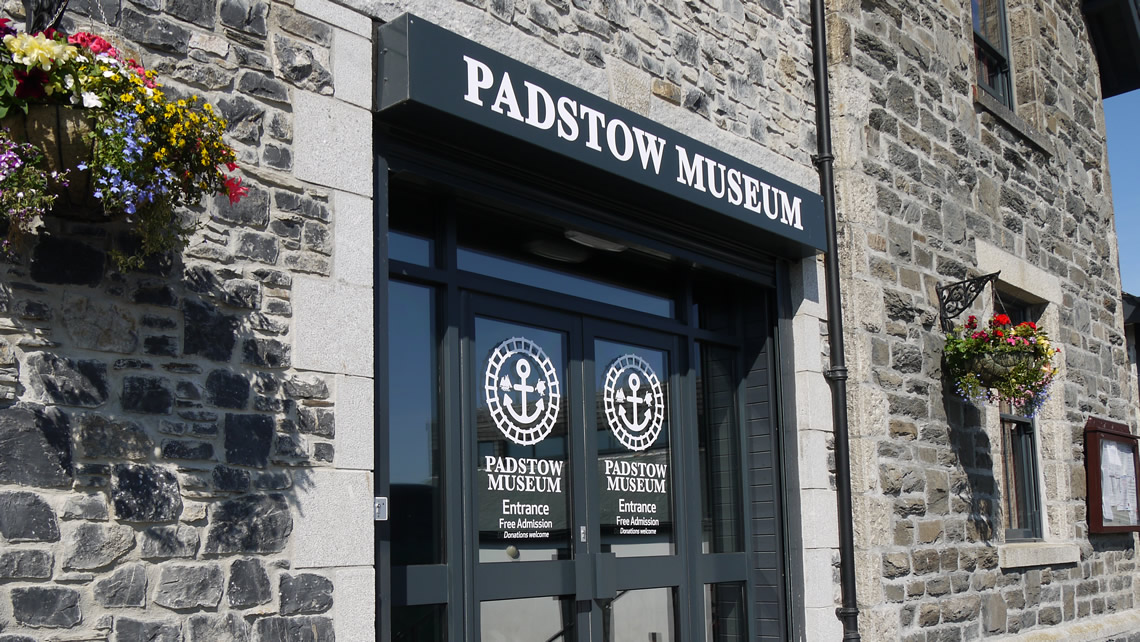Founded in 1971, The Padstow Museum is home to a fascinating selection of objects reflecting the town’s rich cultural and economic history. John Buckingham is the museum’s chairman and has been a volunteer since 1992. He spoke to us about the museum’s history, some favourite items from the collection and a very special pound note.
How did Padstow Museum come to be?
The idea is credited to one man, Bill Lindsey. He was a retired shipbuilder with a shed full of old tools and artefacts relating to maritime history. There was nowhere in town to show people the history, so he got a group of Padstonians together and they went from there.
Tell us about the collection
We’ve done our best to feature all the important aspects of the town’s history, such as shipbuilding and the railway, as we’re in the station house with the platform where trains came in carrying fish. That was a major focus of Padstow’s industry right up until the Second World War and after. But eventually the boom of holidaymakers came and shared the space – it was fish and visitors, a good combination!
You have some very striking exhibits, including a rather fearsome looking May Day mask. What’s the most unusual exhibit in the museum?
I think most Padstow born people are so proud of the May Day imagery whether they take part in the celebrations or not. Then there’s the mounted horsemen, which are mediaeval tiles that were on the roof of Barclays Bank until they decided to take them down. They were thrown in a skip and we rescued them.
Can you tell us about the 1819 Padstow banknote?
I received an envelope from St Lucia with these lovely West Indian stamps on it. As I opened it, I immediately knew what I was looking at – the Padstow pound note [stolen from the museum in 1984]. We had photographs, so I knew what it looked like and was able to check the details on the photograph. There was no letter with it – possibly somebody found it and had a fit of conscience. How it came to be in St Lucia, we’ll never know. When you’re involved in a voluntary organisation, these little stories do stand out.
